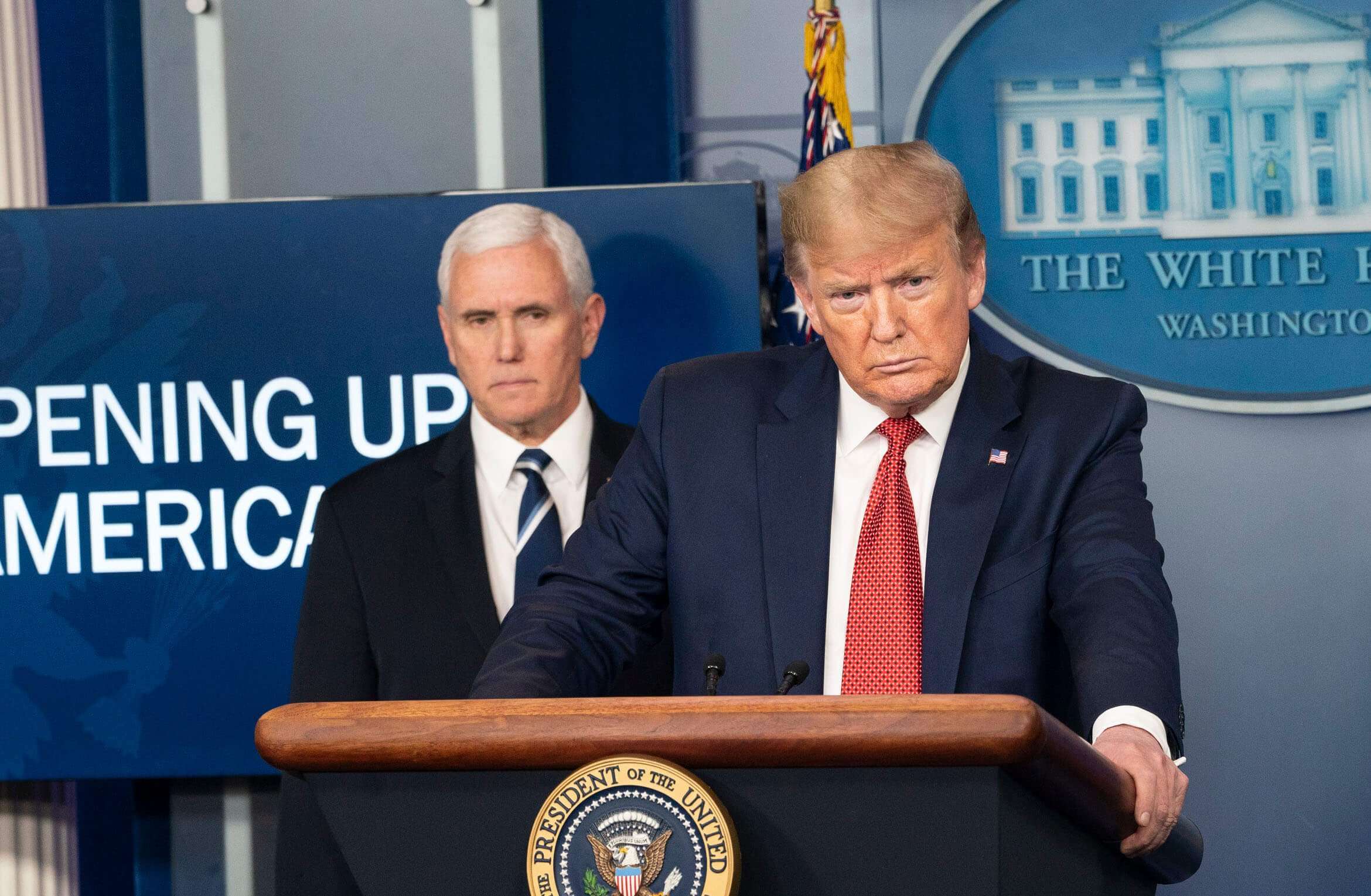President Donald Trump frequently refers to the novel coronavirus SARS-CoV-2 as the “China virus.” New research indicates that his followers are more likely than other Americans to admit they would engage in discriminatory behavior toward people of Asian descent.
Besides trust in President Trump, the new study in the International Journal of Public Health has uncovered several factors related to negative attitudes toward Asians amid the COVID-19 pandemic.
“We were interested in this topic because we were following how quickly Asian Americans began to report increased discrimination and violence in response to the onset of COVID-19 in the United States,” said study authors Lindsay Y. Dhanani and Berkeley Franz, who are both assistant professors at Ohio University.
“It was difficult to follow the news cycle without reading a story about an Asian American being verbally harassed or physically attacked, or of Americans avoiding Asian-owned restaurants and businesses. We were also seeing a lot of stigmatizing language being used to describe the virus and blame Asian Americans for the spread of COVID-19 in the United States, which seemed to strengthen stigma and harassment.”
“As a psychologist and sociologist who are broadly interested in intergroup relations, we wanted to examine what about COVID-19 might be contributing to these growing hostilities and we wanted to do so in a more systematic way than just relying on anecdotal reports of discrimination.”
The study, based on surveys of 1,141 U.S. residents in March 2020, found that more than over 40% of people reported they would engage in at least one biased and discriminatory behavior toward people of Asian descent, such as refusing to sit next to an Asian person on a bus or avoiding ordering food prepared by restaurants with Asian employees.
The researchers found that men, nonwhite individuals, and Republicans tended to report greater bias towards people of Asian descent compared to the rest of the sample. In addition, greater fear of contracting COVID-19, less accurate knowledge about the virus, and greater trust in President Trump were also associated with higher levels of bias. Participants with more trust in science and greater knowledge of COVID-19 symptoms, on the other hand, reported less bias.
“The most important takeaway from our study is that COVID-19 does appear to be stoking bias toward Asian Americans in ways that can be very damaging to the short-term and long-term wellbeing of Asian Americans. Importantly, at the same time that Asian Americans are facing the physical risks of COVID-19 infection that all of us are facing, this group is disproportionately being exposed to stress and discrimination which is linked to both physical, mental, and economic harm,” Dhanani and Franz told PsyPost.
“We further found that bias toward Asian Americans is highest among people who were less accurately informed about the virus, were more fearful of the virus, distrusted science, and placed greater trust in President Trump. These findings highlight the power that leaders and news outlets have in shaping the discrimination against Asian Americans that has continued to unfold in response to COVID-19 and suggest that a coordinated and robust public health response may not only save lives, but limit exposure to stigma and discrimination among minority groups.”
The study controlled for gender, age, race, education, sexual orientation, political affiliation, and whether people were practicing social distancing. But like all research, it includes some limitations.
“The biggest caveat to our study is that it did not use an experimental design to determine the causal relationship among variables. We really need additional work that uses more rigorous designs to know for sure if the response to COVID-19 in the United States is causing bias and discrimination. Research is also needed from the perspective of Asian Americans to truly capture their experiences amid the crisis and how the public health response to COVID-19 in the United States has affected minority mental and physical health,” the researchers explained.

nealotron on August 17th, 2020 at 23:41 UTC »
Guess some mod went on a power trip huh
SamCarter_SGC on August 17th, 2020 at 16:31 UTC »
"More likely to admit"
So everyone else is just as likely to act but not as likely to admit to it? What a weird way to word it.
SoBeDragon0 on August 17th, 2020 at 16:11 UTC »
The best practices state that a disease name should consist of generic descriptive terms, based on the symptoms that the disease causes (e.g. respiratory disease, neurologic syndrome, watery diarrhoea) and more specific descriptive terms when robust information is available on how the disease manifests, who it affects, its severity or seasonality (e.g. progressive, juvenile, severe, winter). If the pathogen that causes the disease is known, it should be part of the disease name (e.g. coronavirus, influenza virus, salmonella).
Terms that should be avoided in disease names include geographic locations (e.g. Middle East Respiratory Syndrome, Spanish Flu, Rift Valley fever), people’s names (e.g. Creutzfeldt-Jakob disease, Chagas disease), species of animal or food (e.g. swine flu, bird flu, monkey pox), cultural, population, industry or occupational references (e.g. legionnaires), and terms that incite undue fear (e.g. unknown, fatal, epidemic).
"The use of names such as ‘swine flu’ and ‘Middle East Respiratory Syndrome’ has had unintended negative impacts by stigmatizing certain communities or economic sectors. This may seem like a trivial issue to some, but disease names really do matter to the people who are directly affected. We’ve seen certain disease names provoke a backlash against members of particular religious or ethnic communities, create unjustified barriers to travel, commerce and trade, and trigger needless slaughtering of food animals. This can have serious consequences for peoples’ lives and livelihoods.” ~Dr Keiji Fukuda, Assistant Director-General for Health Security, WHO.
https://www.who.int/mediacentre/news/notes/2015/naming-new-diseases/en/
Who could have seen that coming?